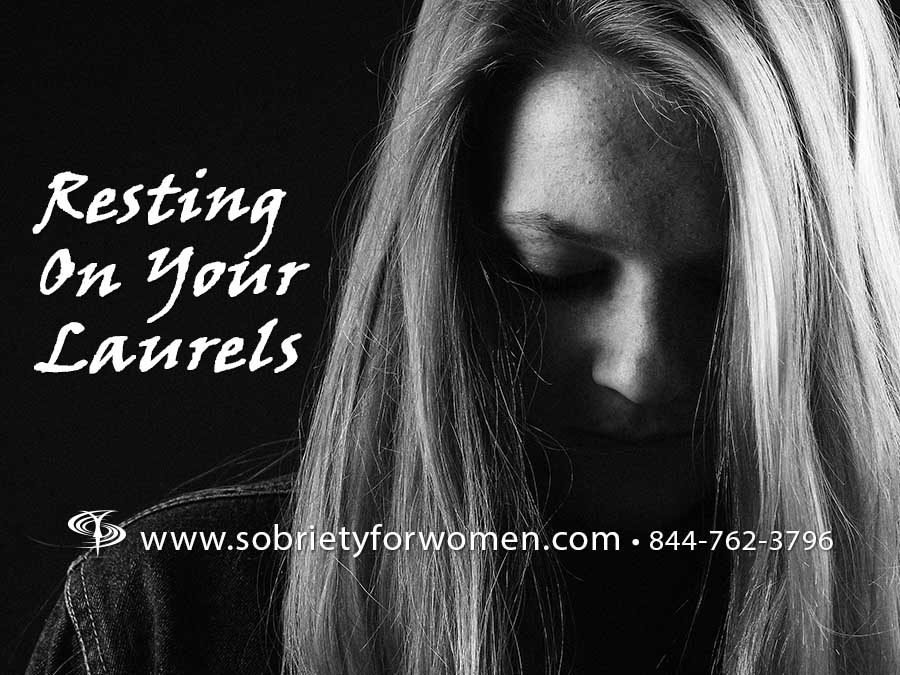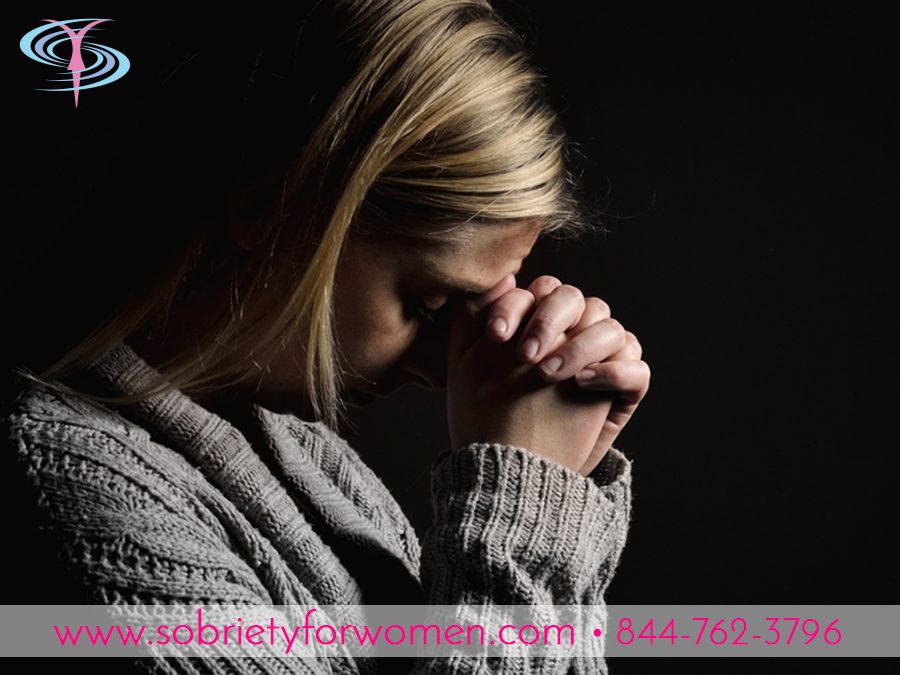
by Sally Rosa | Apr 14, 2014 | Addiction Articles, 12 Steps
What Does Resting On Your Laurels Even Mean?
That’s a good question! Resting on your laurels is when you’re so satisfied with your achievements that you stop growing. You stop making an attempt to grow in the image and likeness of God as you understand God.
Resting on your laurels is serious business! It happens to those new in recovery and those with time. Learning why resting on your laurels can lead to relapse is yet another step towards long-term sobriety.
Page Eighty-Five in the Big Book of Alcoholics Anonymous says

“It is easy to let up on the spiritual program of action and rest on our laurels. We are headed for trouble if we do, for alcohol is a subtle foe. We are not cured of alcoholism. What we really have is a daily reprieve contingent on the maintenance of our spiritual condition. Every day is a day when we must carry the vision of God’s will into all of our activities. ‘How can I best serve Thee – Thy will (not mine) be done.’ These are thoughts, which must go with us constantly. We can exercise our will power along this line all we wish. It is the proper use of the will.”
Even AA admits that it’s easy to rest on our laurels! Remember though, sobriety is a marathon, not a sprint! Just because we rest on our laurels for a little while, doesn’t mean we can’t start working a spiritual program of action again. Wait a minute, just what is a spiritual program of action?
What is a Spiritual Program of Action?

This is different for everyone. Basically, as long as you have a Higher Power, which has been found through the twelve-steps, you’re good to go.
That last part is important. We must find our Higher Power through the twelve-steps. Once we’ve found that Higher Power, we need to continue to work steps ten, eleven, and twelve in our daily lives. We need to live in the solution!
To practice step ten, we need to write a personal inventory and reflect on our day. By doing this, we’re able to see where we were selfish and fearful. We’re able to see how our Higher Power can help us change those behaviors.
To practice step eleven, we need to pray and meditate on a daily basis. A simple way of thinking about prayer and meditation is that in prayer we’re talking to our Higher Power and in meditation we’re listening to it. Through practicing the eleventh step, we learn that nothing happens by accident!
To practice step ten, we need to carry the message and help others. That’s how we stay sober. Those of us who’ve finished the steps experience a spiritual awakening. At this point, our perceptions change. We see things in a way we never thought was possible. We’re able to start helping other women.
What Happens When You Rest on Your Laurels?
When you rest on your laurels things progressively get worse. That’s just how it goes. Eventually, you relapse. Because of how alcoholism works, you may be resting on your laurels and not even realize it!
There have been countless stories of alcoholics and what they did to get better. Usually, after a certain degree of success, we feel like we don’t need AA anymore, or that we’re okay where we’re at.
Even after graduating a women’s treatment center, even after completing the twelve-steps, us alcoholics CAN’T do this on our own. We must find a power greater than ourselves. Sober time doesn’t matter. As long as we stay spiritually fit, maintain what we learn through the steps, and continue to grow, we’re going to be okay. We’re going to live a meaningful, sober life.
It’s our choice whether we continue to grow or rest on our laurels. If we do rest on our laurels, we begin to fall back into a dry-drunk life, until we eventually drink. Them’s the facts, kiddos.

by Fiona Stockard | Dec 21, 2012 | Recovery, Addiction Treatment
Growing Up Religious
I never had any intention of growing up and becoming a drug addict. It just sort of happened. I saw things I’d been sheltered from my entire life. I did things I swore I’d never do.
I was born into a way of life where God, and the Bible, were more important than anything else. I grew up a Jehovah’s Witness with a loving family. I was raised with spiritual principals and a deep love for God. When I was around sixteen, I switched high schools. I ended up with friends who were Jehovah’s Witnesses and friends who weren’t. My family always warned me “bad associations spoil useful habits,” but I just heard another restriction being placed on my life. I started becoming resentful at my upbringing.
I never felt connected to the religion I was raised in. It was what I was supposed to do, not what I wanted to. I went through with the motions, trying to be part of a life that was so important to my family. I thought religion was the only option if I wanted God in my life. I was either a Jehovah’s Witness, or I was nothing. I chose nothing.
I felt being raised as a Jehovah’s Witness was the reason I didn’t fit in anywhere. I couldn’t celebrate Christmas. I couldn’t date the boys I wanted. I felt different than everyone else (turns out most addicts feel this way, but I didn’t know that at the time). I became angry at God.

How Dark It Is Before Dawn
Just like I was angry at God, I thought God was angry at me. I thought God was angry at me for smoking cigarettes, for drinking recreationally, for having premarital sex.
Being angry at God is a dangerous thing for an addict like me. I had this empty, and ever growing, hole in my chest. This space, as a child, was filled with God’s grace. This hole was painful, shameful, and unbearable.
The shame I experienced for dishonored my family only brought me to darker places. Soon, I was spending all day, everyday, trying to numb my feelings. I’d do anything to distract myself from the pain and anger I felt as soon as I opened my eyes each morning. I was exactly what my family never wanted me to be, a junkie. I didn’t care about anything besides getting high.
After a couple years of couch surfing, and the occasional dirty apartment, I moved back to my parent’s house. This quicker my spiral to rockbottom. I saw, everyday, just how badly I was living. Shame, guilt, and love for your family are powerful motivators. I finally confessed to my parents all of what was going on. They immediately went into “save our daughter” mode.
I was ninety pounds. All the life had left my eyes. I was a walking dead woman. It was horrible for my family to see me this way.
My Experience With a God of My Own Understanding
My family placed me in a treatment center, where my real work started. I was afraid to believe in God. I thought if I believed in God, I’d have to take responsibility for how bad of a person I was convinced I was. In treatment I was given a gift.
My therapist told me early on that I wasn’t restricted to believing only what my family did. This was the first time I’d ever heard those words. I always thought I was a Jehovah’s Witness, or nothing at all. For the first time in my life, I could choose a God of my own understanding.
It took me a few days to believe this was actually true! Soon, I got a sponsor and began working the twelve-steps of Alcoholics Anonymous. My sponsor also explained I was free to choose whatever conception of God I wanted.
I created my own God. This God was all about love and forgiveness. A lot of the concepts I used came from the religion I was raised in. However, I put my personal spin on God. I was raised with good morals and spiritual principals. Once I learned to accept my family’s way of life, I was free of all resentment towards the Jehovah’s Witness religion. In fact, I feel that being raised as a Jehovah’s Witness gave me some help while learning learning how to live God’s will. I was created by a spiritual being, but let myself get in my own way!
I’m no longer a Jehovah’s Witness, but I do have an amazing Higher Power. This Higher Power’s brought me from the darkest misery to the most beautiful happiness. I have a great relationship with my family. Today, we can talk about God and life without anyone leaving the room.
I was given the gift to have my own conception of God and my life’s been nothing but wonderful since!




